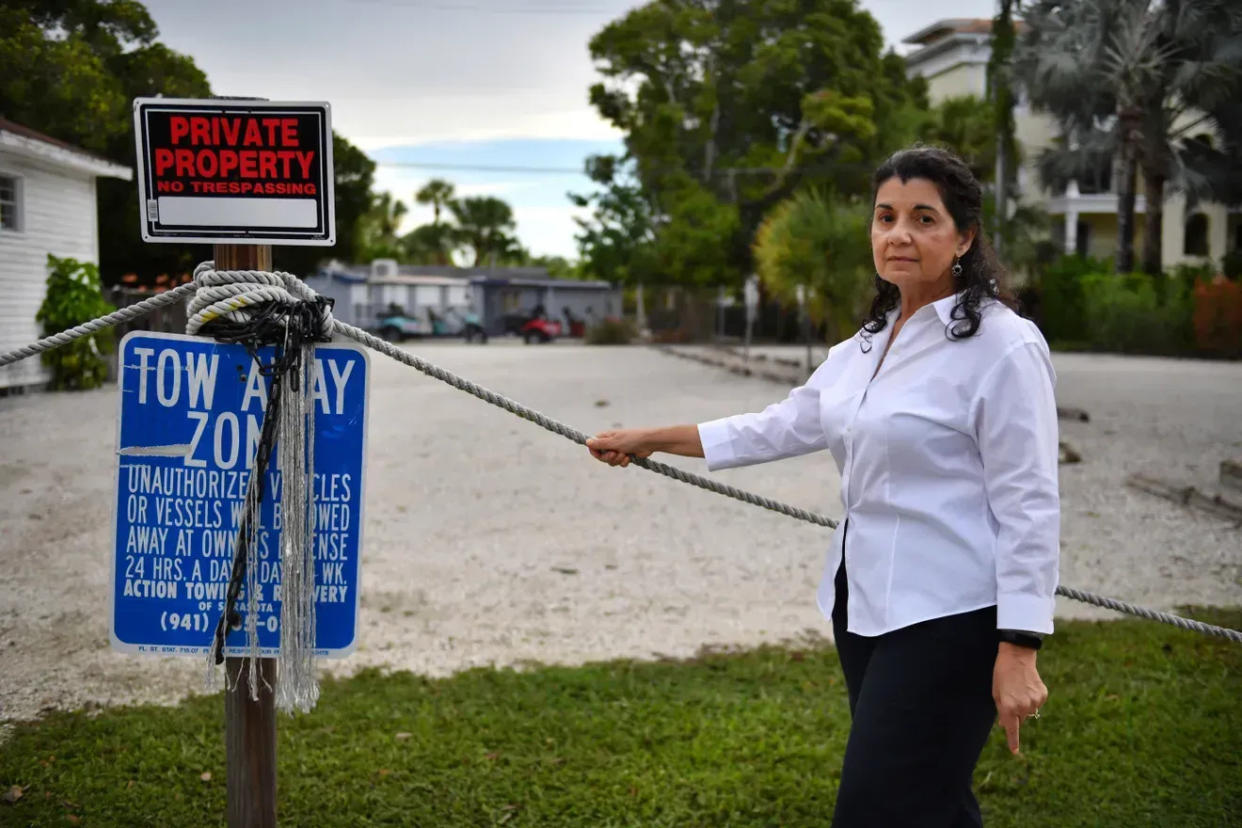Developers avoid court costs, leaving Sarasota taxpayers with the bill in Siesta Key suit

This story has been updated.
An effort by Siesta Key resident Lourdes Ramirez to force hotel developers to pay part of her legal fees in her successful lawsuit against Sarasota County was rejected by a circuit judge, leaving county taxpayers on the hook for a bill that could be hundreds of thousands of dollars.
Sarasota Circuit Judge Stephen Walker allowed the hotel developers to intervene in the case soon after Ramirez sued the county in 2021 after the County Commission removed a hotel size cap on the barrier island that would have paved the way for the first hotel development on Siesta Key in decades.
Walker later recused himself from the case due to a conflict of interest with one of the law firms representing one of the developers.
Circuit Judge Hunter W. Carroll took over the case in March 2023, according to the court docket, ultimately siding with Ramirez.
However, the intervenor's secondary status in the case allowed the developers' attorneys to file motions, participate in depositions and request documents — all actions that Ramirez argued increased the costs in an already expensive two-year legal battle.
"There was a huge cost associated with the case that now falls on the county taxpayer to unfairly pick up," Ramirez told the Herald-Tribune.
Also, when the developers entered the suit, they put Ramirez on notice that if they prevailed she would be required to pay their fees. The judge did not weigh in on that assertion, but did rule earlier this month that the intervenors would not be liable for court costs given their secondary status in the case.
A final order had not yet been filed on that decision as of Monday.
Ramirez's lawsuit accused the County Commission of violating longstanding growth policies that limited increasing development density or intensity on the barrier island, with the judge siding with Ramirez in October.
A 2019 change to state law requires the judge to award attorney fees and court costs to the prevailing party in a challenge to a development order — a move that critics warned would discourage citizens from participating in local land use decisions.
Until now, the prevailing parties provision from that 2019 law has not been applied on any case where a resident won, as few residents have been willing to risk losing and then face hundreds of thousands of dollars in legal fees.
Richard Grosso, an attorney representing Ramirez, said he believed this was the first time a resident has won in court since the 2019 change.
Grosso, who is also a law professor at Nova Southeastern University in Fort Lauderdale, famously prevailed in a Martin County development lawsuit in which the courts ordered the developer to raze a completed $3.3 million apartment complex in 2002.
He was also involved in a unsuccessful legal challenge to the 2019 change in state law.
Despite that law change benefiting his client this time, he still believes the law is bad public policy that should be revisited by the Legislature.
"It’s still a horrible law," he said. "It’s one of the key things the Legislature has done to really weaken our growth management laws and it takes extraordinary people like Lourdes Ramirez to stand up for their communities."
Grosso said while he disagrees with that part of the law from a public policy standpoint, if developers are allowed to enter a lawsuit but have no liability, it could set a dangerous precedent.
"It is kind of a play for free card the way the developer convinced the judge to rule on this," he said. "They argued when they came into the case that if they win they are entitled to their fees and now they turn around and argue after they lose they aren’t liable for our fees. Only the county is liable. That’s a very dangerous precedent."
Ramirez said some of the most time consuming matters in the legal case were controlled by the developers' attorneys, citing a seven hour deposition when the majority of the questions did not originate from the county's legal team.
They also sought extensive records including information off Ramirez's cell phone.
"This was a land-use case," she said. "That was ridiculous. Nothing on my phone had anything to do with Sarasota County's comprehensive plan or it's development code."
Grosso said while he was thankful that Carroll took the time to fully understand a complicated land use issue that included extensive research on decades of the county's growth policies, he disagreed with the fee decision.
The developers "affirmatively got into the case, increased our costs and the county's costs substantially, and I just think with all due respect it’s just the wrong ruling that they are not liable for any fees and the county taxpayers have to pay all the fees."
The legal bills continue to arrive, Ramirez said, with a final figure not yet tallied.
Previous coverage: Sarasota County Commission supports Benderson over other Siesta Key hotel proposals
More: Soleta Golf Club near Myakka City launches with plans for 650-acre golf club community
This article originally appeared on Sarasota Herald-Tribune: Judge: Hotel developers can avoid legal fees in Siesta Key litigation

